Kubota | Precise Vine Management
Optimizing taste and harvest
- October 26, 2023
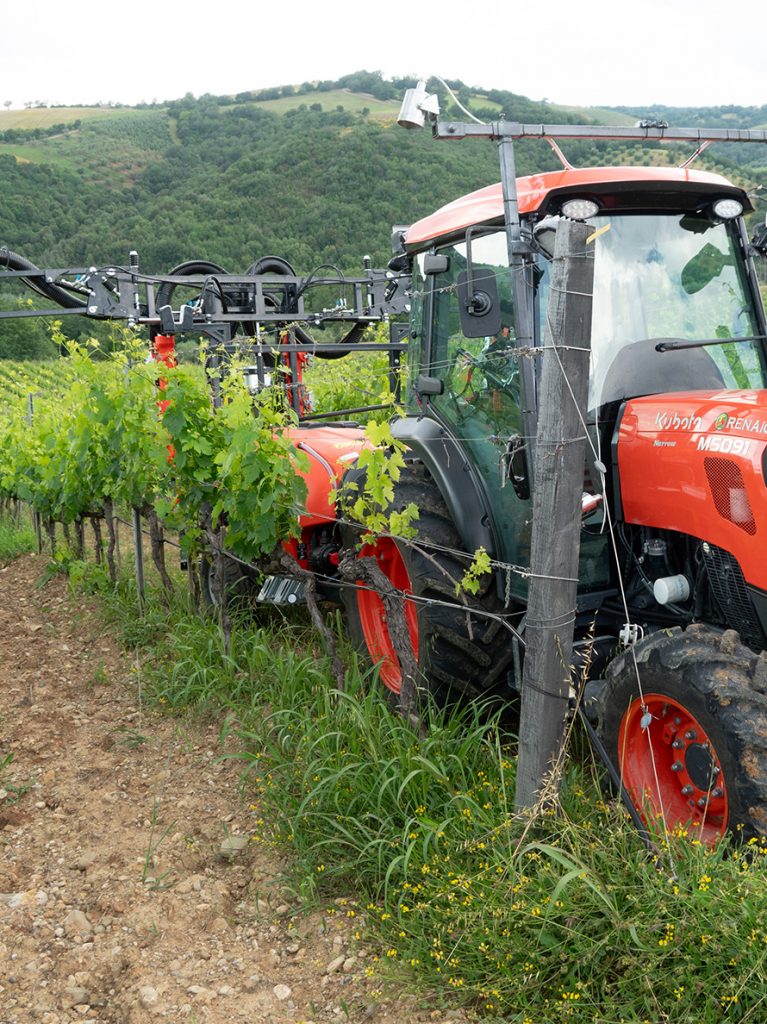

The Challenge
How can we increase vineyard farming profits and tackle vine growth needs while protecting the environment?
As the environment and climate changes and supply of labour decrease, managing vine health and grape yields is becoming increasingly costly and time consuming. Furthermore, achieving a better wine tasting experience starts in the vineyard cultivation process, where quality and yield are key to manage production and customer demands. How can vine growers address these agricultural challenges today?
What are the benefits of embedded and integrated crop sensing in vineyards?
- Embedded sensors enable mapping, disease diagnosis and prescriptive treatment
- Enhances potential of digitization, AI, robotics and automation
- Increases efficiency, optimizes use of inputs, reduces labor requirements and protects the environment
The Solution
A vision of healthy vineyards
Combining crop sensing and state of the art monitoring technology is the best way for precision faming in vineyards.
Vine growers can take advantage of emerging technologies such as GPS and digital maps, AI, robotics and autonomous equipment to enhance vine health and improve crop quality.
An excellent approach which combines devices such as embedded GPS signals, sensors, mapping and AI-based monitoring, bringing precise vine care and prescriptive treatment possibilities.
With these components, farmers enhance their vine analysis and management via a more comprehensive crop view, enabling to assess the individual needs of every single vine tree.
Vine mapping with embedded sensors and AI devices
In conjunction with Chouette, a French agriculture startup developing “vine intelligence services”, Kubota has come up with an innovative solution for precision farming in vineyards: an integrated system using embedded sensor networks mounted on tractors that enable AI analysis and improve decisions for substantial vine care, increasing yields and quality, balancing the crop growth and use of inputs. With the help of Chouette device technology, regular and agricultural surveillance is now available.
Take disease control, for example. During summer and flowering, climate conditions such as high temperatures and humidity can enhance the imminent presence of diseases such as mildew or oidium. With precise vine management, early stage diseases can now be detected via the embedded sensors on tractors, and disease maps can be created. These can be digitally assessed as prescription maps for chemical or organic treatments of specific vine trees only, making the process faster and more efficient.
In trials conducted by Kubota and Chouette since 2021, disease maps created with this smart solution enabled the farmer to attain full knowledge and control over which trees required more and less crop care products, optimizing their usage.
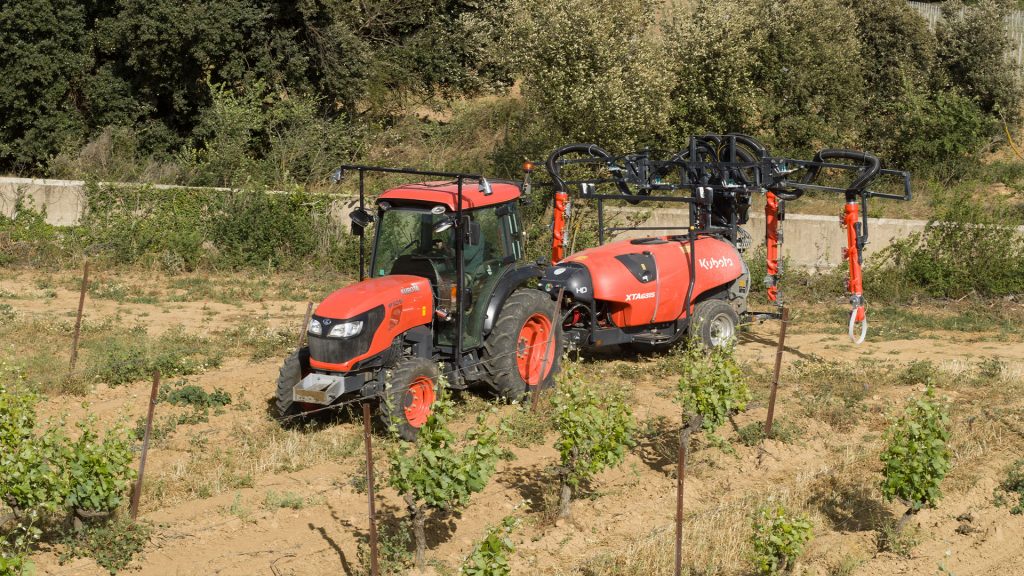
Precise crop care with embedded sensing and automation
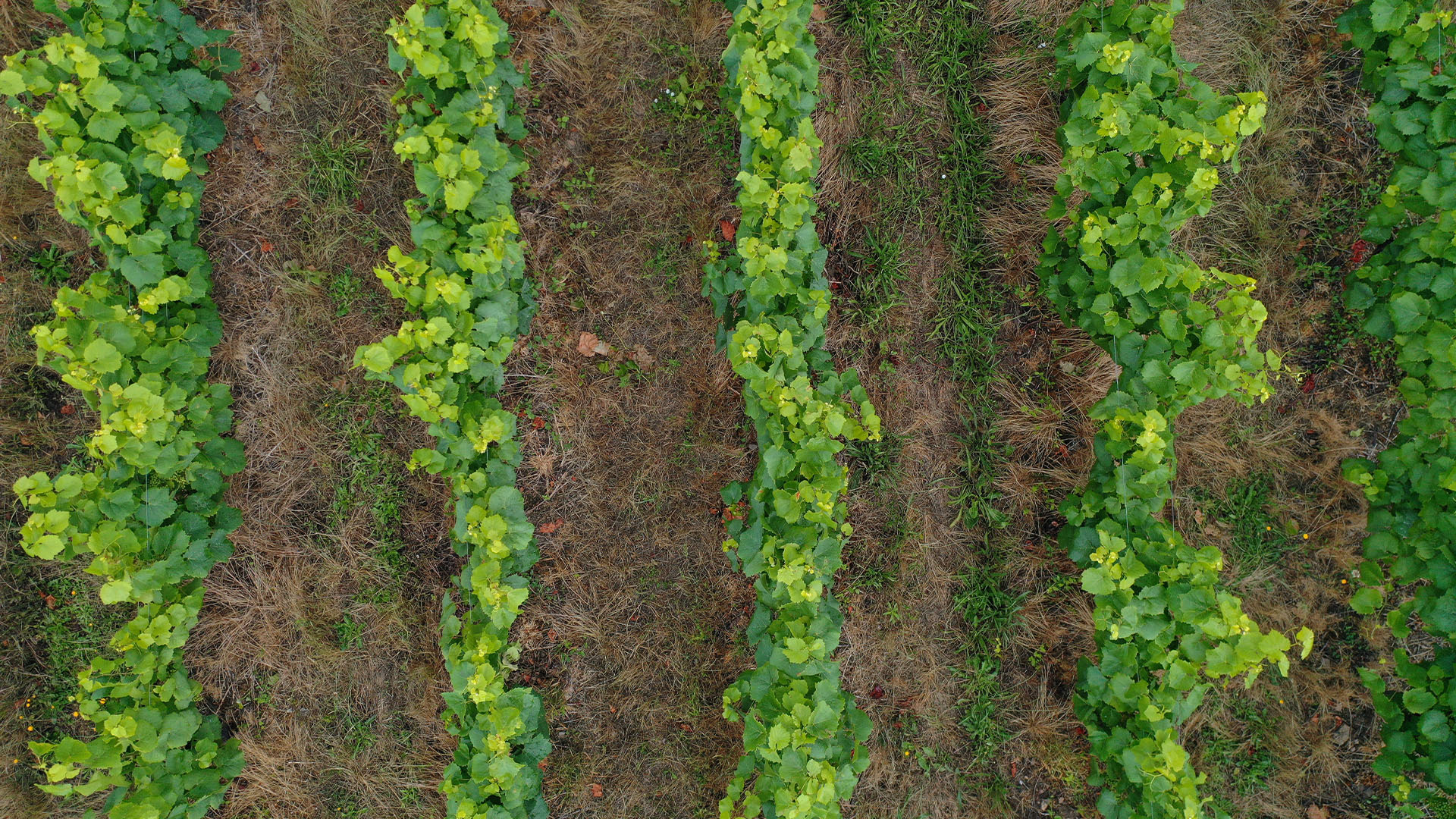
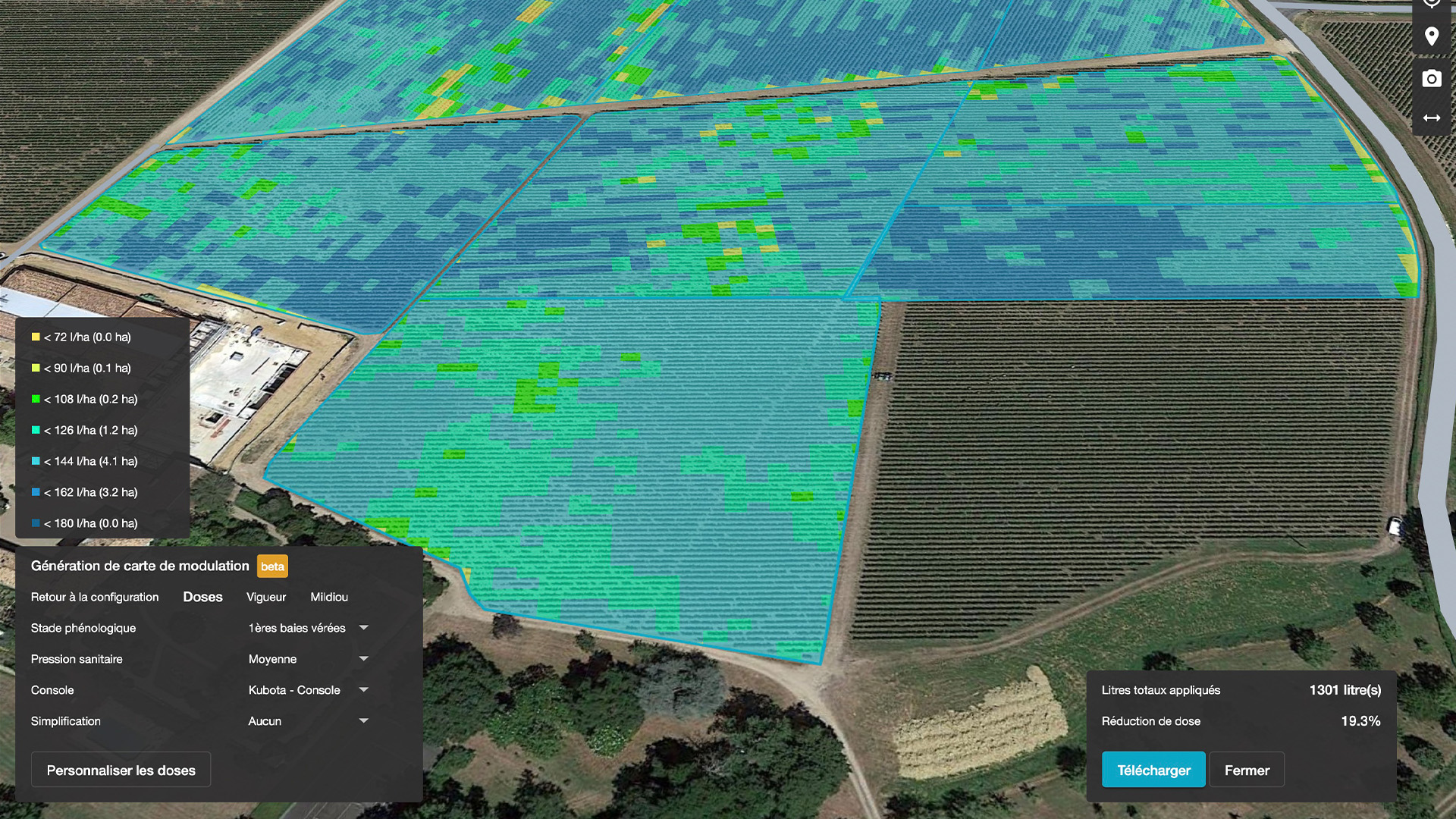
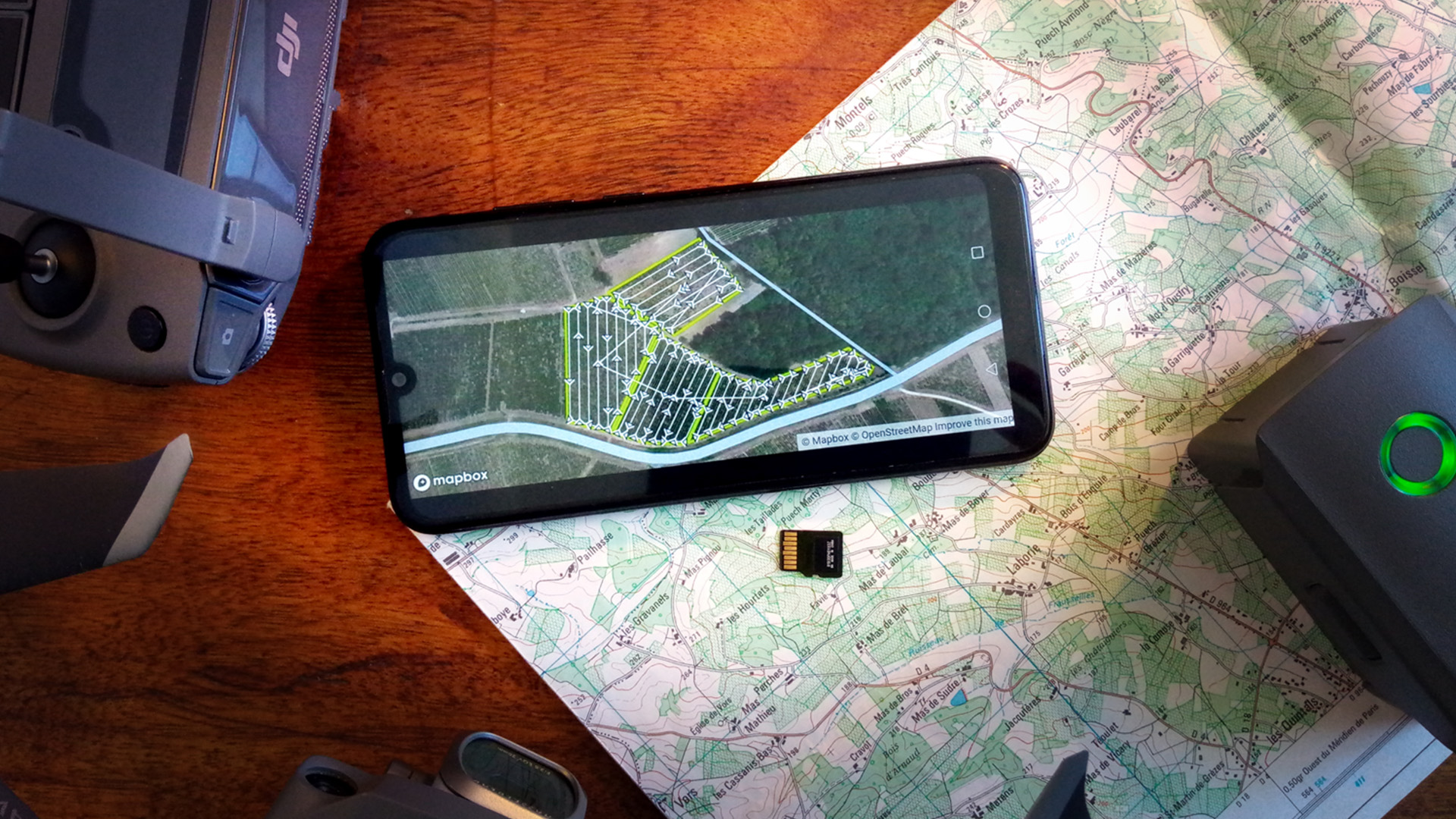
Large-scale mapping for prescriptive low-cost treatment
The embedded sensors system can do more as well. The data collected by such smart sensors can be transformed into vigour maps for liquid fertilizer control. Collected data on canopy height and health can be retrieved, assessed and turned into prescribed action carried out by vineyard equipment. Focused agricultural management devices such as these can help reduce the environmental footprint of fertilizing in farming, tackle labour availability and costs, fight crop diseases and less water usage for liquid fertilization. Of course, this farming technology can also deliver high-volume yields at lower costs.
Balanced vigour and disease control are highly important factors in modern vine management. The Kubota and Chouette embedded sensing system can boost grower´s overall control in this regard. Images of different leaf colors can identify canopy health issues or early signs of disease. Capturing and applying this data at the right moment, the smart sensors help vine growers deliver time-critical treatment to just the vine trees that need it, saving on labour and fertilizer while achieving the best grape quality and crop production.
Early imaging for vine health
Trials conducted by Kubota and Chouette in a vineyard in 2021-2022 enabled real-time high-resolution early stage disease detection and the reduction of crop care products. Working with camera sensors and other critical applications allowed for a more targeted crop care control and a decrease in overall power consumption. Furthermore, the collected data made it possible for the vine grower to control the disease spread while saving up to 40% of chemicals sprayed on the entire vineyard*.
*depending on plot heterogeneity and crop vigor conditions
1. Decrease inputs usage
2. Detect early stage diseases
3. Sustain production
The advantages of such advanced systems are obvious. Being able to achieve a comprehensive diagnosis of all aspects of a vineyard offers multiple benefits to the vine grower, as well as everyone else in the value chain. The amount of labor required and its difficulty can be substantially reduced. Being able to pinpoint the application of inputs such as fertilizers and crop care products means that only the necessary amount of these inputs are needed for optimum vine maintenance, which is better for the environment and helps in promoting wild plants and biodiversity. Moreover, greater yields and quality means better consumer products and taste. Companies such as Kubota and Chouette, at the vanguard of smart farming, are coming up with increasingly beneficial solutions to vine growers of today.
4. Decrease usage of chemicals
5. Savings on labour costs
6. Better crop yields and quality
The People
“On the base of the last two years of testing with embedded sensing, I have been able to achieve 20 to 40% savings on chemical treatments in my vineyard”
Anthony Appolot, wine grower from Chateau de Saint-Pey, Bordeaux
Anthony Appolot is a wine grower from the Bordeaux region. His vineyards stretch over 19 hectares. For two years, he has been testing Chouette sensing technology at his vineyard to monitor and enable precision treatments. Here, he shares his experience:
„Each decision-making about spraying is important as fertilizers and such represent a significant cost for me, I need tools to localize the diseases control while being able to spray locally and decrease the usage of chemicals. The Chouette agricultural solution is also interesting because I can use the cloud-based data even to make sure that the plot was sprayed properly. Without the Chouette sensing technology, you are not able to see potential mistakes that need to be fixed. With Chouette, I‘m sure of both the quality and the dosage sprayed in my vineyard.“
Anthony collected data signals from his own vineyard via embedded actuator systems on the Kubota tractor each time he entered the grounds with the machine, receiving data-driven early diseases detection from the Chouette platform. During the cultivation period, the wine grower created prescription maps according to Chouette’s real-time analysis to apply within VRA-ready agriculture equipment and treat his vines in a more precise manner.
Anthony thinks that such technologies have vast benefits in precision agriculture. Besides saving 20-40% on chemicals, he says the solution can not only have a lasting environmental impact, but also might be a help in attracting or retaining trained and skilled workers such as the tractors’ drivers by stimulating their interest.
According to Anthony, sensing technology proves also being an effective tool to communicate a wine grower’s practices and efforts, improving the relationship with his neighbors in Bordeaux.

UN Sustainable Development Goals
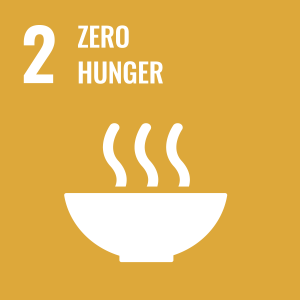





Explore other stories from our brands
How should we address the great challenges of our time? Can we shape a better future together?
The Kubota Group wants to lead the way with innovative solutions for agriculture.
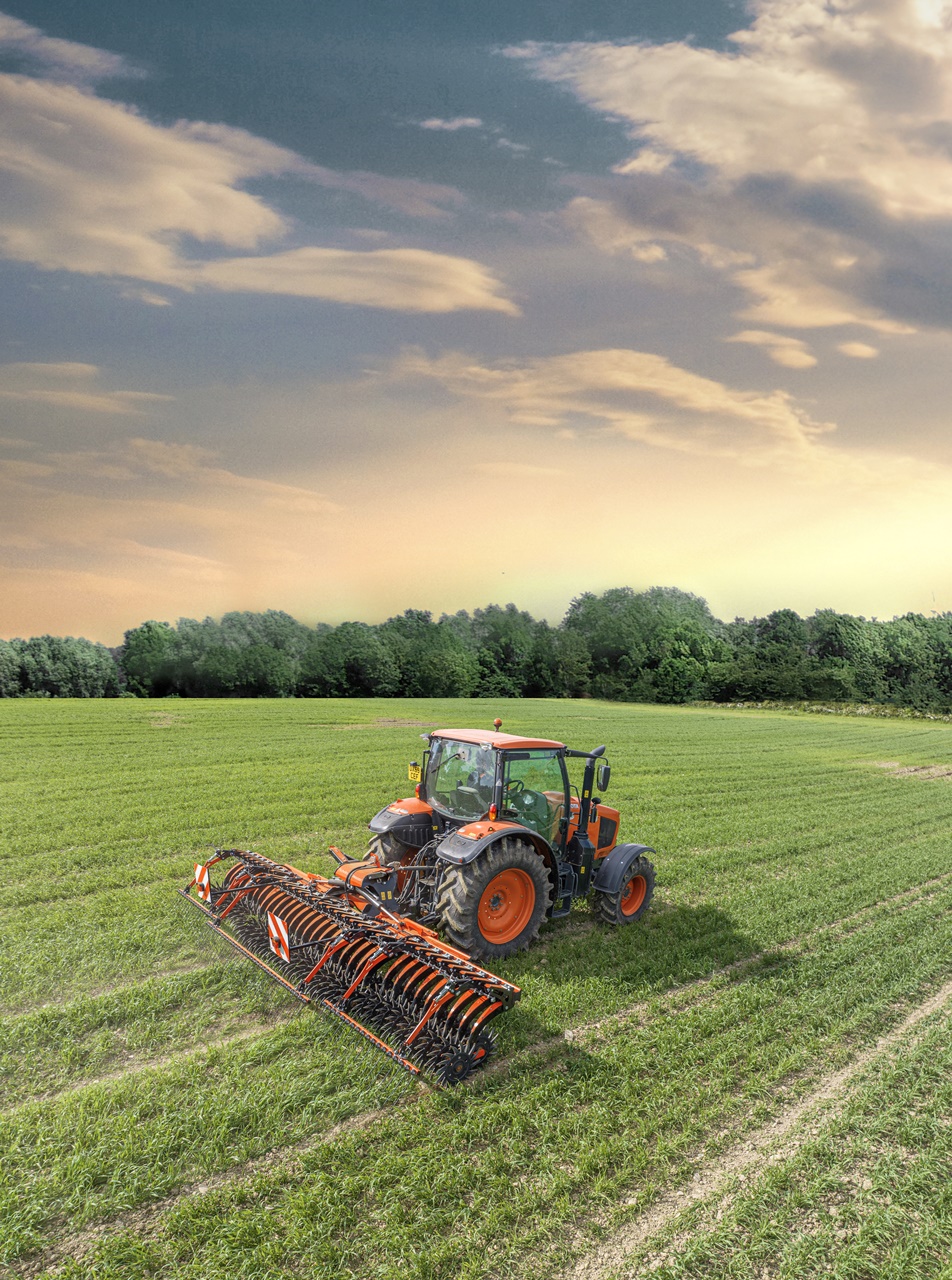
Sustainable, Professional Farming with Mechanical Weeding
Mechanical weeding offers wide agronomic benefits, enhancing soil health, nutrient availability, and plant growth.

Kubota | Electric Retrofit Kit for Excavators
Electrification enables zero emissions, quieter operations, and stable costs for eco-friendly performance.

UV Boosting | Alternative to traditional fungicides
Plant protection using UV stimulation.

Kubota Engines | Innovative engine solutions
Kubota engine solutions contribute to carbon neutrality
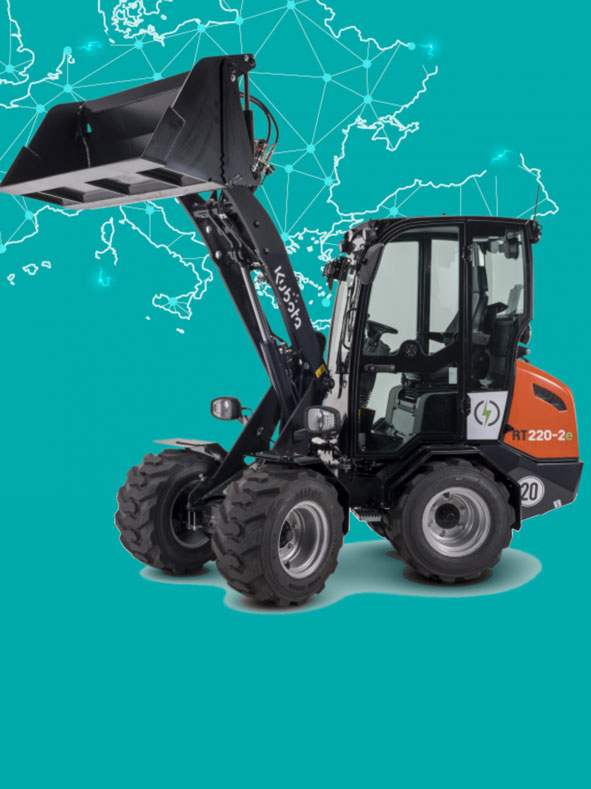
Kubota | Electric compact wheel loaders
Kubota electric wheel loaders offer high performance while producing zero carbon emissions.
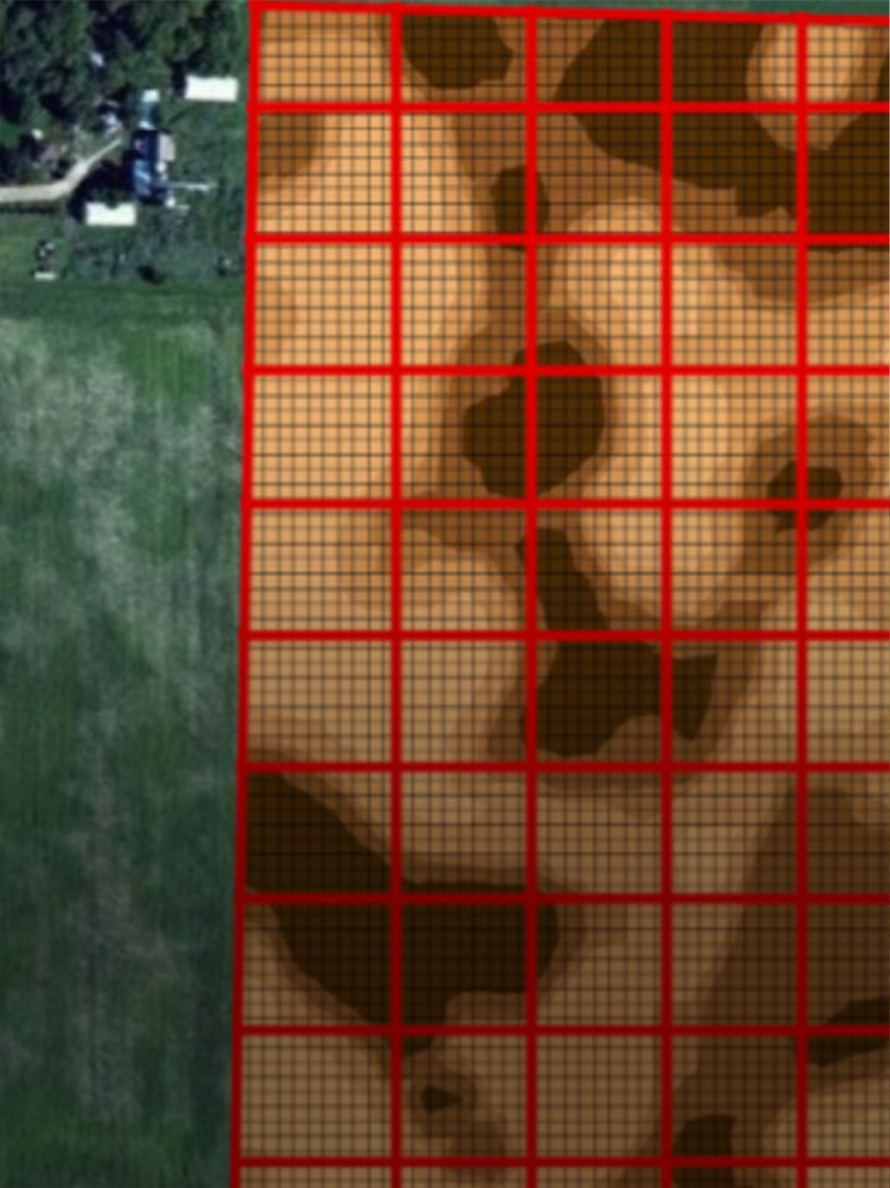
Great Plains | True View – Soil Mapping Solution
Real-time soil sensing detects minute variances in soil content and conditions. Based on this data, soil maps provide a highly accurate field profile.
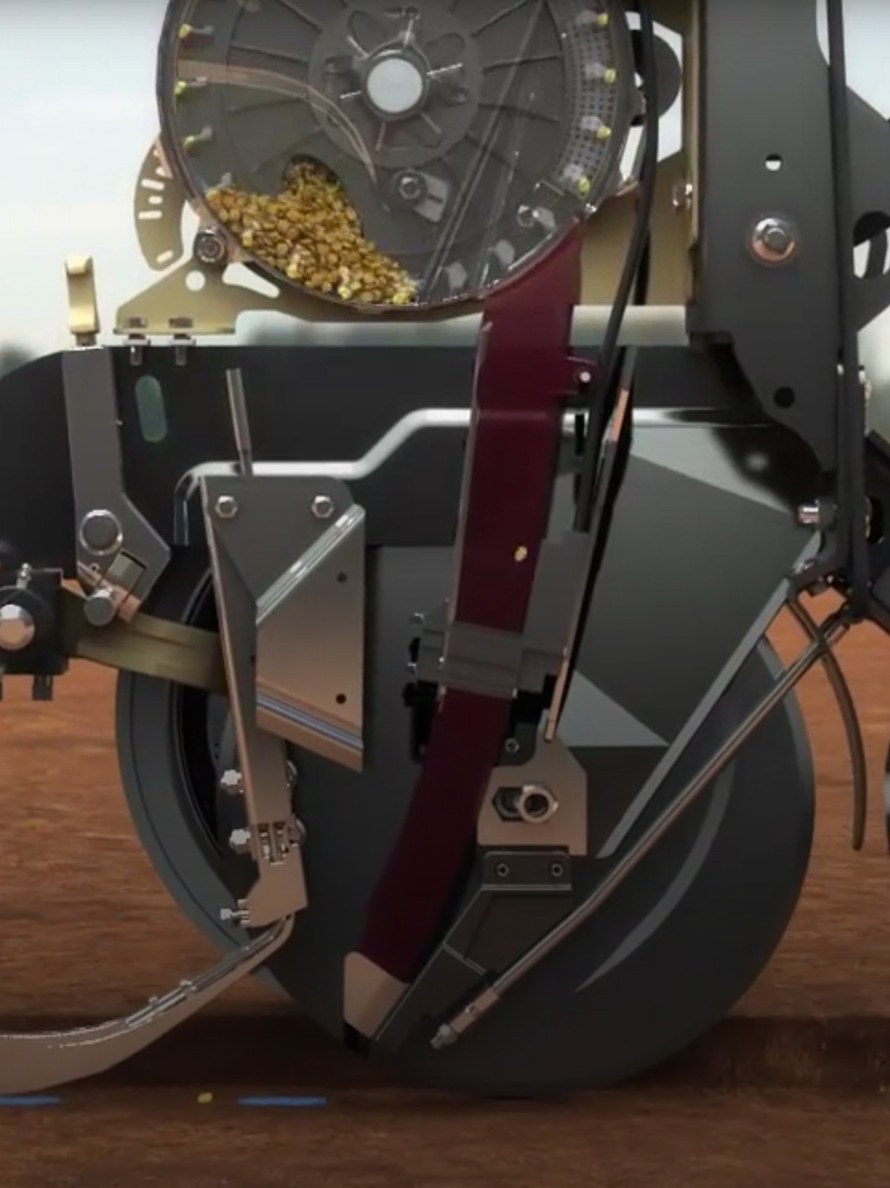
Great Plains | AccuShot precision seed fertiliser
The best start for each seed

Kubota | Compact excavator KX38-4e
Building alternatives

Kverneland | PUDAMA
100% yield with 25% less starter fertiliser!
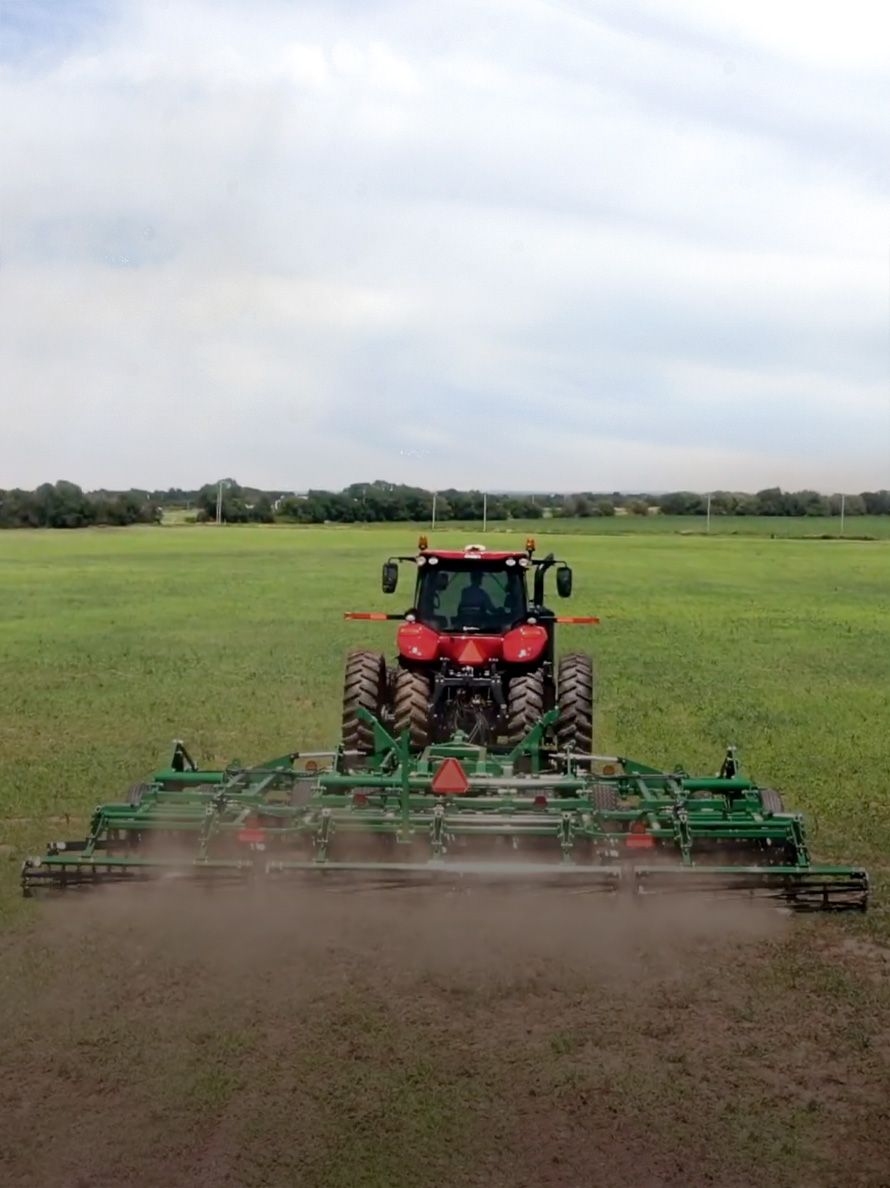
Great Plains | Implement Command
Improving tillage comfort
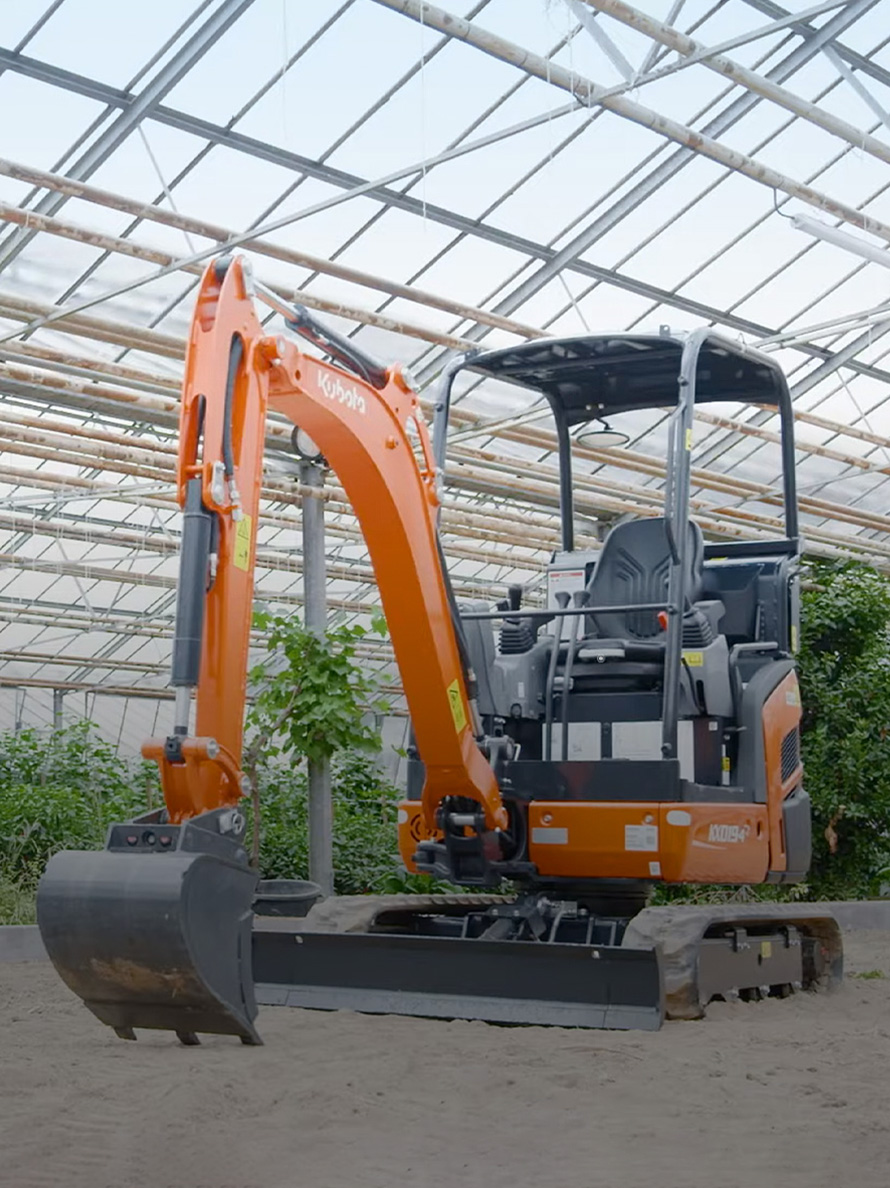
Kubota | LPG Mini-Excavator
Clean power
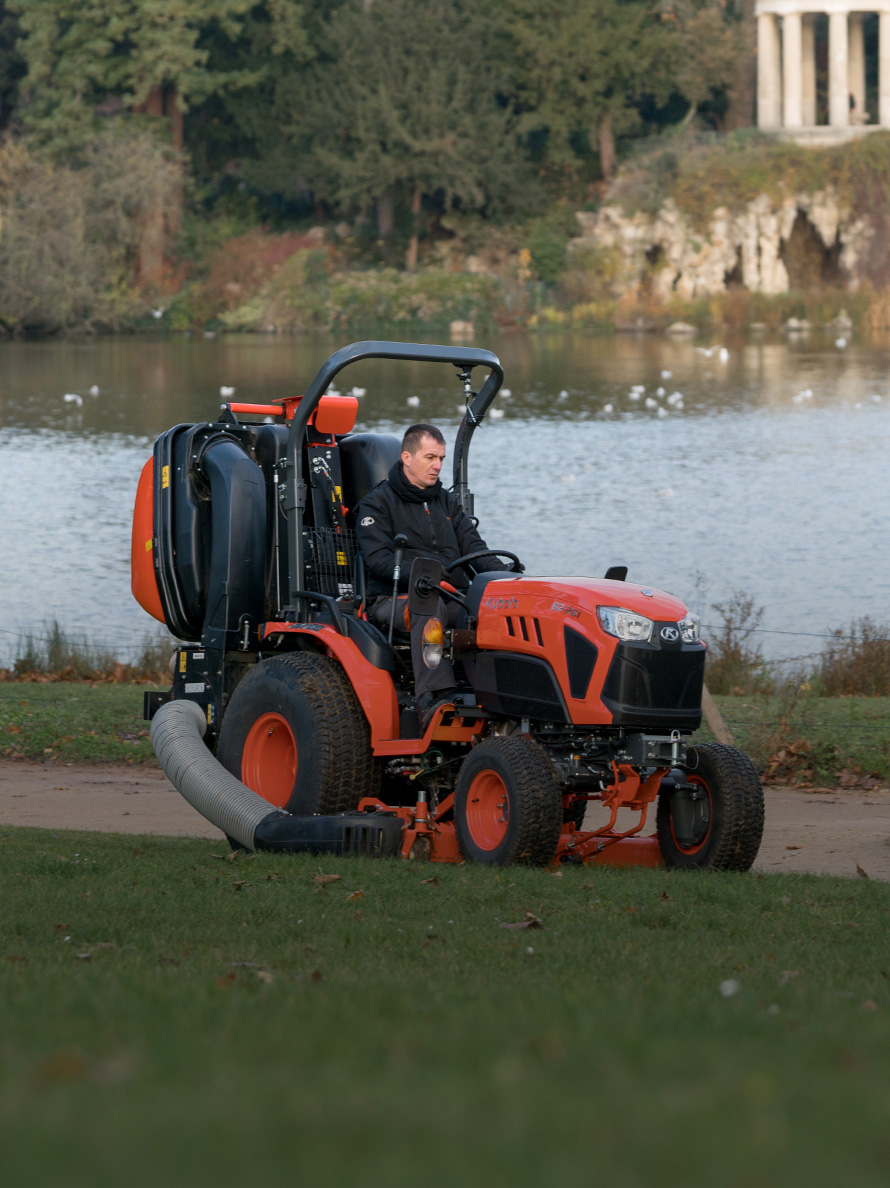
Kubota | E-powered Compact Tractor (LXe Series)
The mission: zero emissions
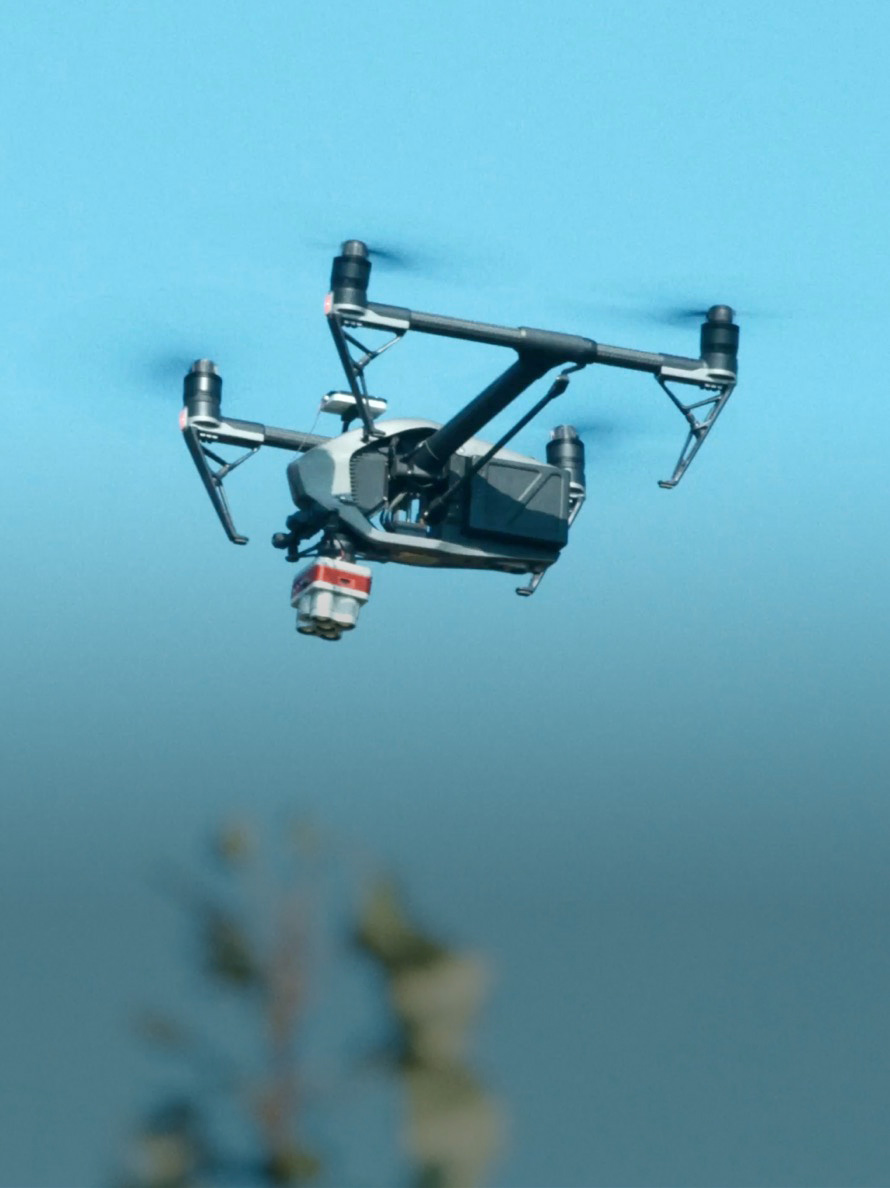
Kubota | Precision Tree Management
Drone imaging for better fruit crops